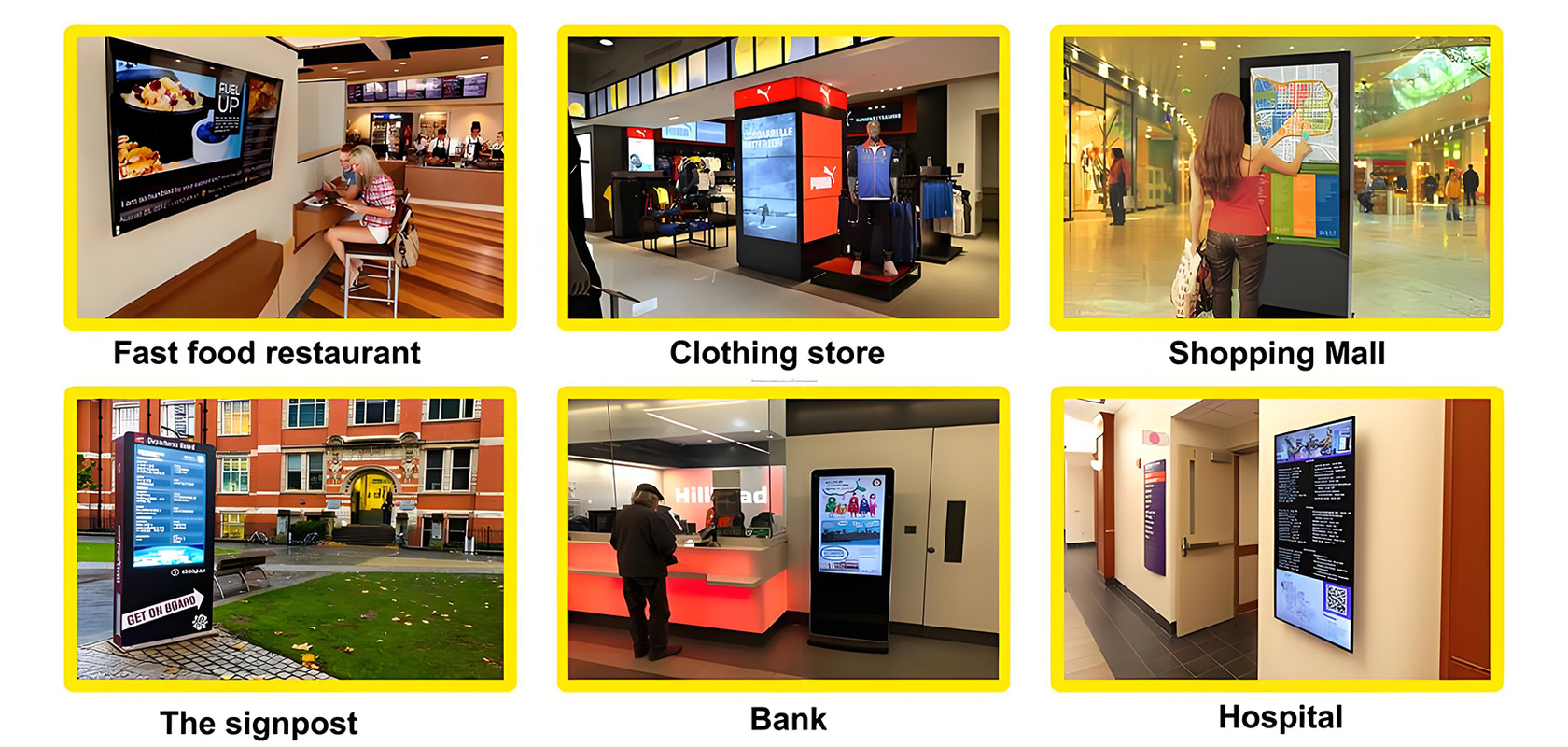How Does Digital Signage Support Corporate Social Responsibility
In today's increasingly interconnected world, corporate social responsibility (CSR) has become a cornerstone for businesses seeking to align their operations with broader societal and environmental goals. It encompasses a wide array of activities and initiatives aimed at enhancing the quality of life for communities, protecting the environment, and ensuring ethical business practices. Among the various tools and technologies that companies leverage to fulfill their CSR mandates, digital signage stands out as a versatile and impactful medium. This article explores how digital signage supports corporate social responsibility, highlighting its role in promoting sustainability, fostering community engagement, and enhancing transparency and ethical practices.

Promoting Sustainability
Sustainability is a critical pillar of CSR, focusing on meeting the needs of the present without compromising the ability of future generations to meet their own needs. Digital signage plays a pivotal role in promoting sustainability efforts within and outside corporate boundaries.
1. Raising Awareness:
Digital displays can be strategically placed in high-traffic areas such as lobbies, corridors, and public spaces to showcase sustainability initiatives. These could range from information on energy-saving practices to highlights of recycling programs. By continuously displaying such content, digital signage raises awareness among employees and visitors, encouraging them to adopt eco-friendly behaviors.
2. Real-Time Monitoring and Feedback:
Advanced digital signage systems can integrate with sensors and IoT devices to display real-time data on energy consumption, waste management, and water usage. This not only informs employees and stakeholders about the current state of sustainability efforts but also provides an opportunity for immediate feedback and adjustments. For instance, if energy consumption spikes unexpectedly, digital signs can alert staff and suggest measures to reduce consumption.
3. Green Messaging Campaigns:
Corporations can use digital signage to run campaigns that promote green lifestyles and practices. These could include tips on reducing carbon footprints, conserving water, and using public transportation. By regularly updating these messages, companies can keep the sustainability conversation alive and relevant, fostering a culture of environmental stewardship among their workforce and the wider community.
Fostering Community Engagement
Community engagement is another fundamental aspect of CSR, emphasizing the importance of building strong relationships with local communities and contributing to their well-being. Digital signage can be a powerful tool for fostering such engagement, enhancing communication, and driving participation in community initiatives.
1. Event Promotion and Information:
Digital displays can be used to promote corporate-sponsored events, such as charity runs, community clean-up days, and health awareness camps. By displaying event details, locations, and registration information, digital signage helps to maximize attendance and engagement. Additionally, live feeds and updates from these events can be streamed on digital signs, creating a sense of inclusivity and shared experience among those unable to attend physically.
2. Volunteer Recruitment and Recognition:
Corporations often rely on volunteer programs to fulfill their CSR commitments. Digital signage can be instrumental in recruiting volunteers by showcasing volunteer opportunities, highlighting the impact of past efforts, and recognizing the contributions of individual volunteers and teams. This not only motivates current employees to participate but also encourages external stakeholders, such as customers and partners, to get involved.
3. Education and Training Programs:
Digital signage can be used to educate community members on critical issues such as health, safety, and environmental conservation. For example, companies can partner with local schools and NGOs to create educational content that is displayed on digital signs in community centers and public spaces. These displays can also serve as platforms for training sessions on various skills, from basic literacy and numeracy to advanced technological competencies, thereby contributing to the personal and professional development of community members.
Enhancing Transparency and Ethical Practices
Transparency and ethical practices are essential components of a robust CSR strategy, ensuring that businesses operate with integrity, honesty, and accountability. Digital signage can play a significant role in promoting transparency and fostering ethical behavior within organizations.
1. Policy Communication:
Corporate policies and ethical guidelines are often complex and extensive, making it challenging to ensure that all employees are fully informed and compliant. Digital signage can be used to communicate these policies in a concise, accessible manner. Regular updates and reminders on ethical conduct, anti-discrimination policies, and whistleblowing mechanisms can be displayed, ensuring that employees remain aware of their responsibilities and rights.
2. Reporting and Accountability:
Digital signage can be integrated with corporate reporting systems to display key performance indicators (KPIs) related to CSR efforts. This includes metrics on social impact, environmental performance, and ethical compliance. By making this information visible and accessible, companies demonstrate their commitment to transparency and accountability. It also encourages employees and stakeholders to provide feedback and suggestions, fostering a culture of continuous improvement.
3. Ethical Sourcing and Supply Chain Transparency:
In today's globalized economy, ethical sourcing and supply chain transparency are critical issues for many companies. Digital signage can be used to showcase the efforts made to ensure that products and services are sourced and produced responsibly. This could include stories and testimonials from suppliers, certifications and accreditations, and information on initiatives to support fair trade and worker rights. By doing so, companies can build trust with consumers and stakeholders, reinforcing their brand values and ethical stance.
Conclusion
Corporate social responsibility is not just a buzzword; it is a commitment to making a positive impact on society and the environment. Digital signage, with its versatility and reach, stands out as a valuable tool in supporting CSR efforts. From promoting sustainability and fostering community engagement to enhancing transparency and ethical practices, digital signage offers numerous ways for companies to align their operations with broader societal goals.
As businesses continue to evolve and face new challenges, the role of digital signage in CSR will likely expand. With advancements in technology, such as artificial intelligence and machine learning, digital signage systems will become even more sophisticated, enabling more personalized and interactive experiences that further drive engagement and awareness.
In conclusion, digital signage is not just a communication medium; it is a catalyst for positive change. By leveraging its potential, companies can effectively communicate their CSR efforts, engage with their stakeholders, and contribute to a more sustainable, equitable, and responsible world. As we move forward, the integration of digital signage into CSR strategies will be crucial in ensuring that businesses not only meet their financial objectives but also fulfill their obligations as responsible corporate citizens.
Application scenarios of digital signage

Tags:
self service kiosk touch kiosk digital signage interactive display interactive touch whiteboard kiosk video wall wall outdoor kiosk IP68 IP67 screen Shopping MallCurrent article link:
https://www.lcdkiosk.com/news/1182.html







